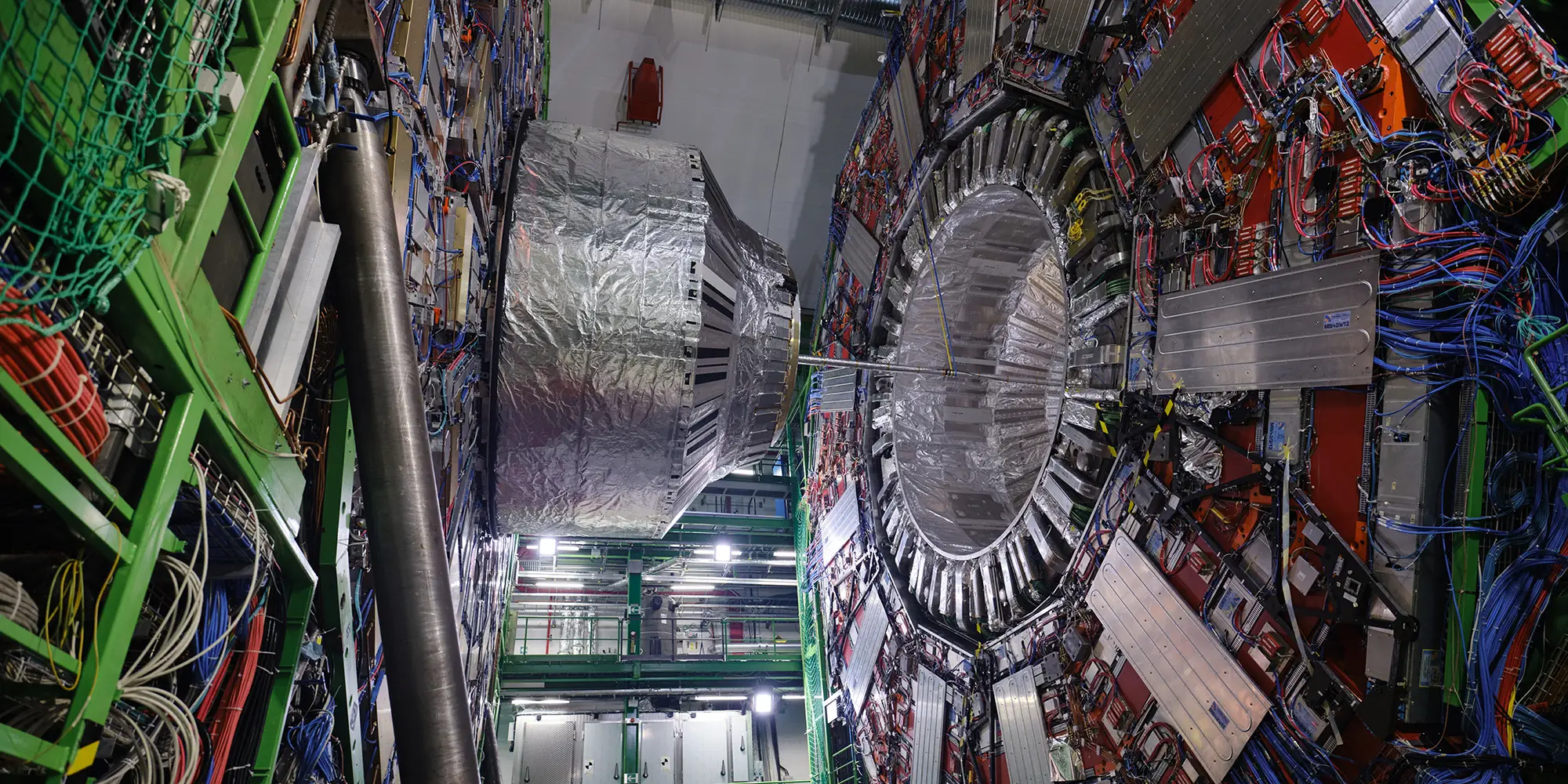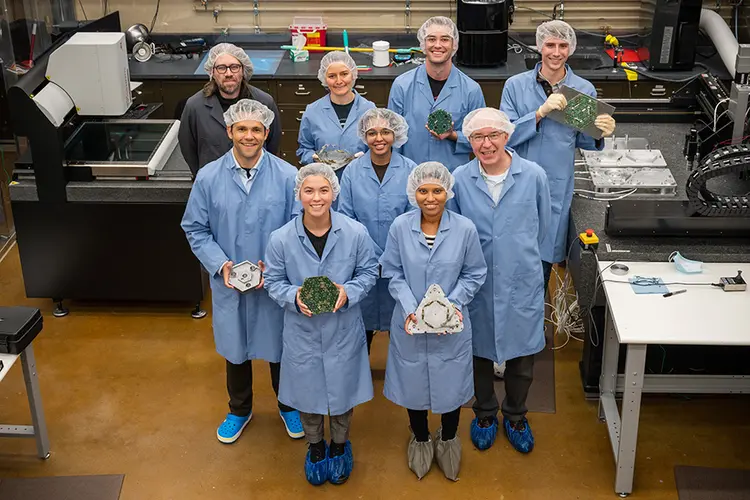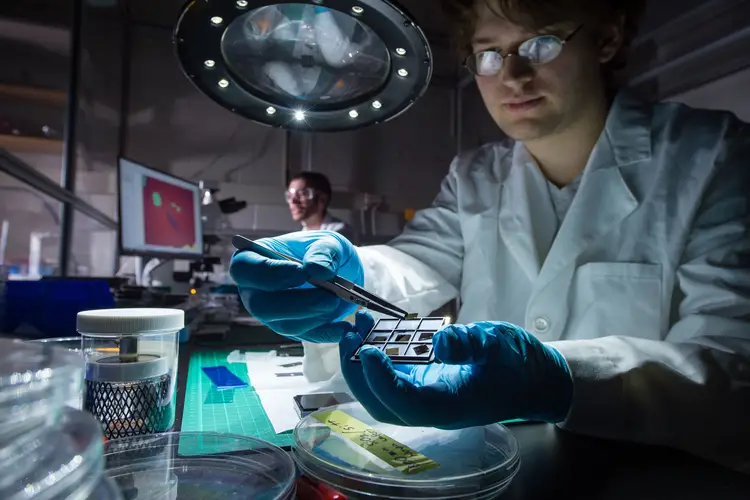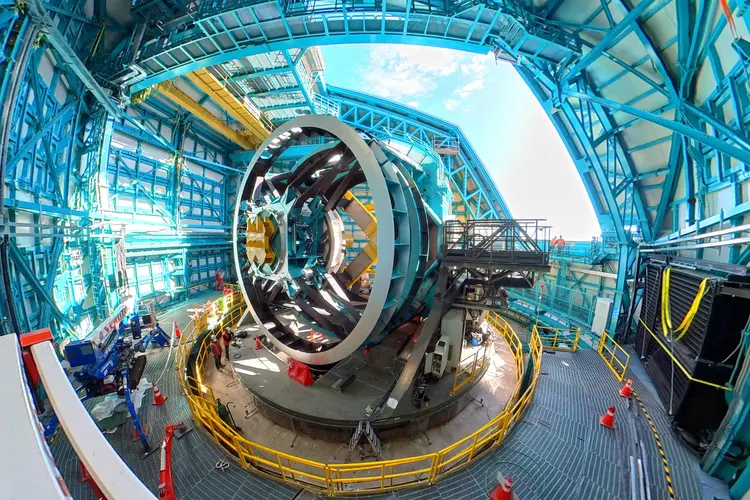
CMU AI Algorithm Detects Anomalies in CMS Experiment
Media Inquiries
Carnegie Mellon University Department of Physics(opens in new window) students and faculty are improving data quality monitoring systems as part of experiments at the Large Hadron Collider(opens in new window). Their work will help uncover the fundamental particles and forces of nature.
Abhirami Harilal, a doctoral physics student, is the lead author on a paper detailing this new approach, which promises to make the detection of data anomalies more accurate and efficient.
“Such real-time capability is essential in the fast-paced LHC environment for the timely detection and correction of detector issues,” Harilal said.
Harilal, along with Michael Andrews, who graduated in 2021 with a Ph.D. and now works at Edge Focus; Kyungmin Park, a current Ph.D. student; and Manfred Paulini(opens in new window), professor and Mellon College of Science associate dean for research, developed and deployed an innovative machine-learning technique to enhance the current data quality monitoring system of the Compact Muon Solenoid(opens in new window) (CMS) electromagnetic calorimeter (ECAL), a crucial component of the CMS detector(opens in new window).
"This is the first ML based system deployed at CMS to augment the data quality monitoring during detector operations and data taking,” Paulini said. “It was a great team effort of my graduate students with Michael initiating the project, Abhirami developing the system for the ECAL barrel and Kyungmin adding the software for the ECAL endcaps."
The ECAL is a subdetector that measures the energy of particles, mainly electrons and photons, produced in collisions at the LHC. It allows physicists to reconstruct particle decays. Ensuring the accuracy and reliability of data recorded in the ECAL is paramount for the successful operation of the experiment.
The new system was deployed(opens in new window) in the barrel of the ECAL in 2022 and in the endcaps in 2023. It will be used throughout the third operational run of the LHC, also known as Run 3, which is planned to last through July 2026.
Traditional CMS data quality monitoring system consists of conventional software that relies on a combination of predefined rules, thresholds and manual inspections to alert the team in the control room to potential detector issues. This approach involves setting specific criteria for what constitutes normal data behavior and flagging deviations. While effective, Harilal said, these methods can potentially miss subtle or unexpected anomalies that don't fit predefined patterns.
“In contrast, the new machine-learning-based system is able to detect these anomalies, complementing the traditional data quality monitoring system,” Harilal said. “It is trained to recognize the normal detector behavior from existing good data and to detect any deviations. The cornerstone of this approach is an autoencoder-based anomaly detection system.”
Autoencoders, a specialized type of neural network, are designed for unsupervised learning tasks.
The system, fed with ECAL data in the form of 2D images, is also adept at spotting anomalies that evolve over time thanks to novel correction strategies. This aspect is crucial for recognizing patterns that may not be immediately apparent but develop gradually.
The novel autoencoder-based system not only boosts the performance of the CMS detector but serves as a model for real-time anomaly detection across various fields, highlighting the transformative potential of artificial intelligence. Industries that manage large-scale, high-speed data streams, such as the finance, cybersecurity and health care industries, could benefit from similar machine-learning-based systems for anomaly detection, enhancing their operational efficiency and reliability.
Their work is outlined in the paper Autoencoder-Based Anomaly Detection System for Online Data Quality Monitoring of the CMS Electromagnetic Calorimeter(opens in new window), published in the journal for Computing and Software for Big Science.


